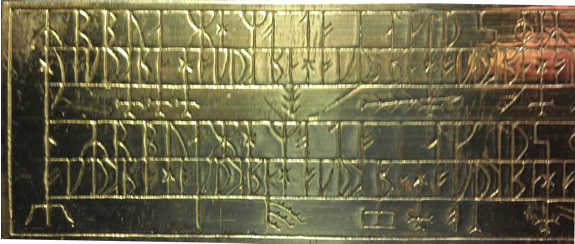
As there’s a lot of it about at this time of year, at least there is in the UK, I thought I’d investigate the origins of the word tinsel today.
According to the OED, tinsel probably comes from the Old French estincelle, which is also the root of the modern French étincelle (a sparke or sparkle of fire, a flash), from the popular Latin *stincilla, which is related to scintilla (spark).
One definition of tinsel in the OED is “very thin plates or sheets, spangles, strips, or threads, originally of gold or silver, later of copper, brass, or some gold- or silver-coloured alloy, used chiefly for ornament; now esp. for cheap and showy ornamentation, gaudy stage costumes, anglers’ flies, and the like”
According to Wikipedia, tinsel was originally made of strands of silver, was invented in Nuremberg around 1610, and was used to adorn sculptures at first, then later to decorate Christmas trees, particularly to enhance the light of the candles on the trees. During the 20th century other materials were used to make tinsel, including copper, aluminiumised paper and lead foil. These days it’s usually made of PVC film coated with a metallic finish.
Is your house currently festooned with tinsel and other decorations?


